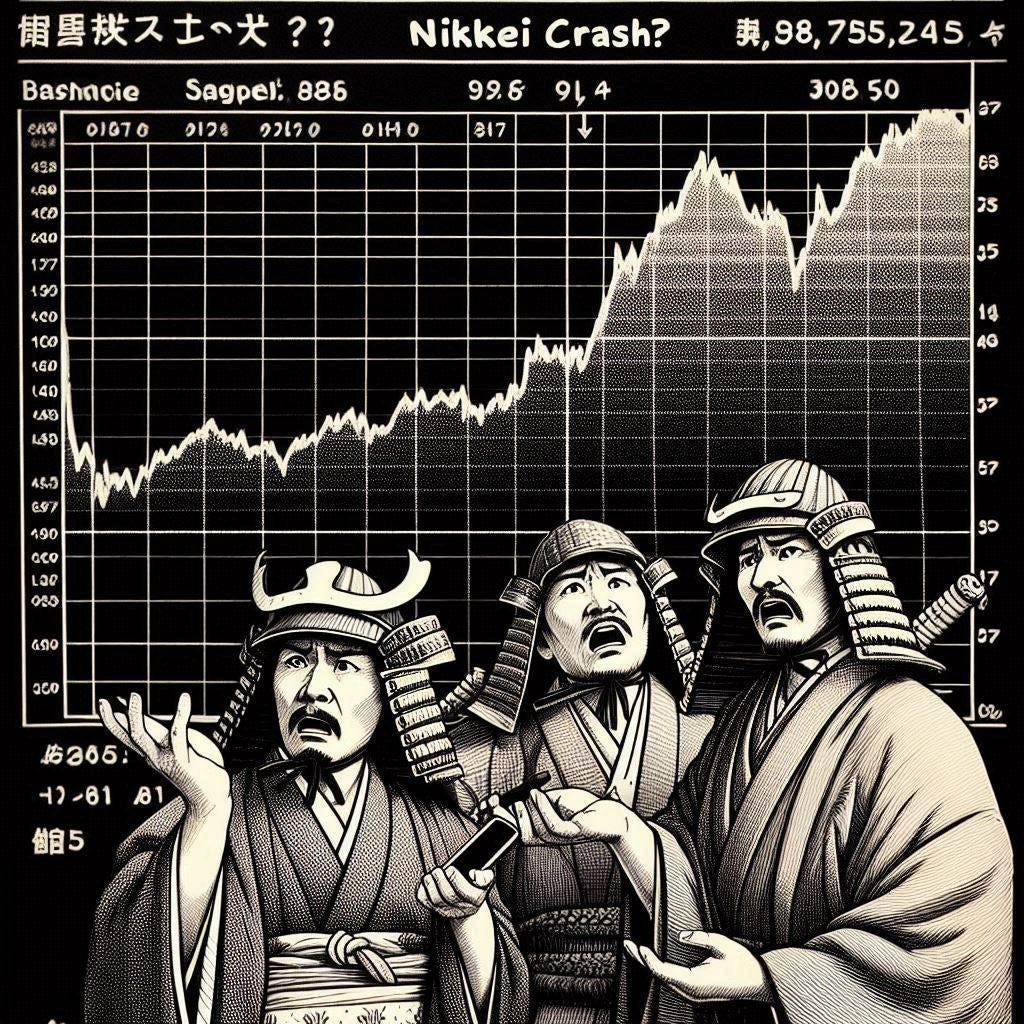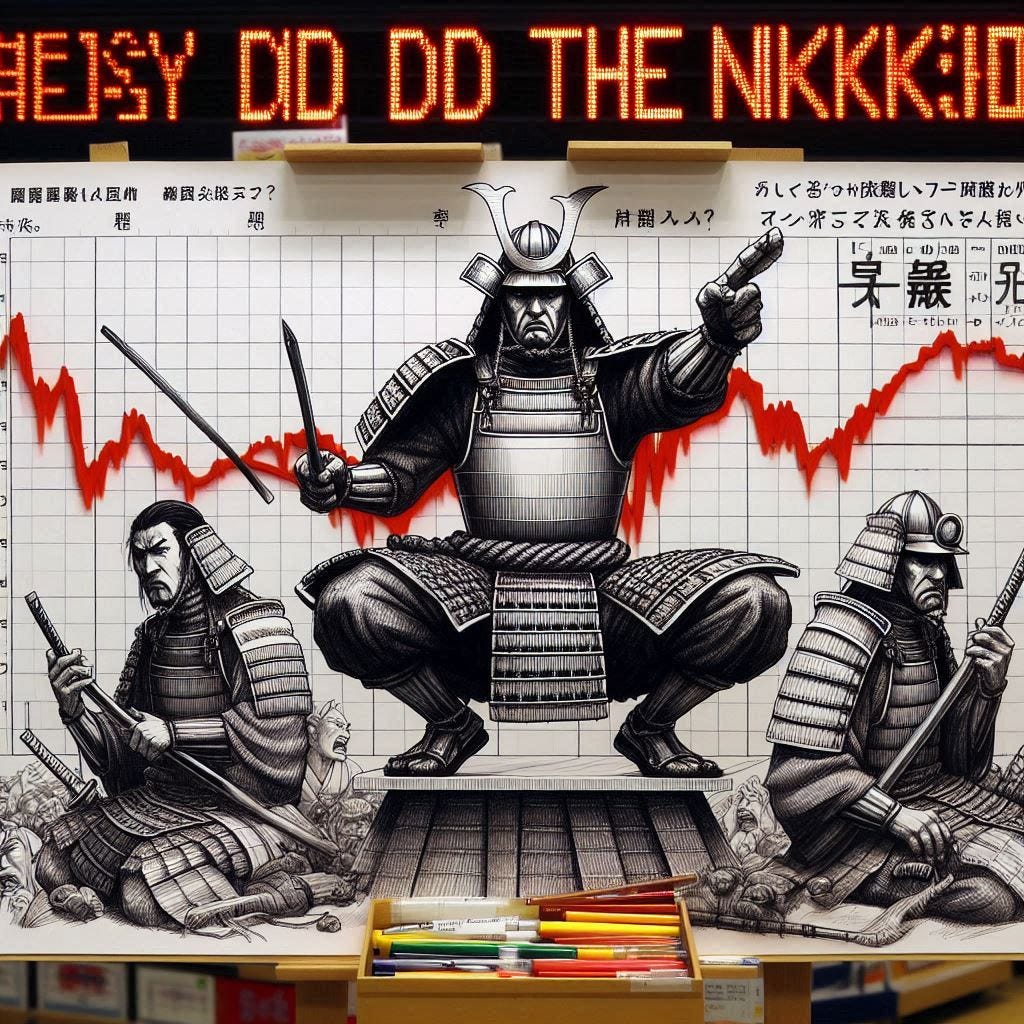Why Did the Nikkei Crash? (Is Japan Still "Big in Japan"? )
Why Did the Nikkei Crash? (Is Japan Still "Big in Japan"? ) Stock market crash raises concerns about world financial system
SUMMARY
INTRODUCTION
The Nikkei index experienced a historic crash on Friday, the second largest in its history. This followed a severe sell-off in the U.S. The Nikkei index, Japan’s premier stock market index, has been tracking the Japan’s economic situation for over seven decades. This is a global benchmark and the barometer of Japan’s economic performance.
Japan's benchmark Nikkei Stock Average on Friday recorded the second-biggest daily drop in its history,
The Bank of Japan first raised interest rates after 17 years to 0.10 percent on March 19. The central bank implemented its second interest rate hike in 17 years on July 31, raising the key rate to approximately 0.25 percent.

Bloomberg clowns mistakenly believe the recent interest rate hike signals a significant departure from Japan's long-standing ultra-loose monetary policy. However, the Bank of Japan's continued negative interest rate policy indicates a more gradual approach to normalization.
The Bank of Japan has signaled its intention to maintain a loose monetary policy. The central bank expects real interest rates to stay deeply negative and has reiterated its commitment to supporting economic growth through accommodative financial conditions.

According to CNBC, the decision to raise interest rates had a positive impact on the stock market and strengthened the Japanese yen.
It's surprising that the market took a sharp downturn in Japan following what seemed like positive news.
Reasons
1- Speculative Players / Nomura Securities
Speculative players are expanding a lot of their short positions in Japanese equities this morning, especially in the futures market, and they are buying U.S. equities. U.S. equities look better able to ride out a global economic downturn, whereas Japanese equities are more cyclical.
2- Yen's Appreciation / Sell - Off Yen Funded Carry
The markets expect the BoJ to go for further hikes, which is strengthening the Japanese currency against the greenback, resulting in sell-off in the yen-funded carry trade. Hot money is saying sayonara!
The interest rate differential between the U.S. and Japan is going to contract in coming months as the Bank of Japan raises policy interest rate and the Federal Reserve trims interest rates.
Hedge funds and traders who leveraged Yen-funded positions are facing significant losses. To mitigate these losses, they are liquidating their US stock holdings. Levered funds are still massively short of the Yen, and asset managers are substantially long of the Nasdaq.

The Bank of International Settlements (BIS) calculates the banks' JPY-denominated cross-border claims reached JPY328tr (US$2.2tr equivalent) as of the end of March 2024, showing a 52% (US$742bn equivalent net of FX revaluation effect) increase compared to the end of 2021.
This is from Bloomberg’s terminal: USD-JPY Carry Return!
3- Geopolitical Tensions in the Middle East
The increasing tensions between Iran and Israel.
4- Fears of a US Recession
The US unemployment rate unexpectedly rose from 4.1% in June to 4.3% in July.
Engin YILMAZ (
)The Benchmark Dollar Rates for Global Finance (The Hierarchy of Dollar Rates)
The Global Dollar Rates Hierarchy is a detailed structure outlining various USD rates in the financial markets, categorized based on their specific purposes and the entities involved.













